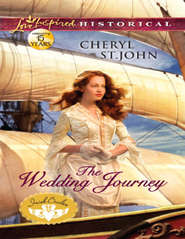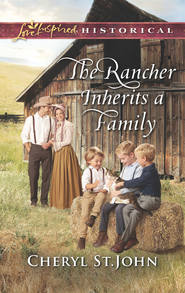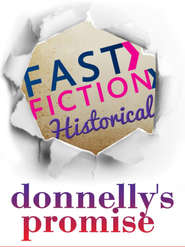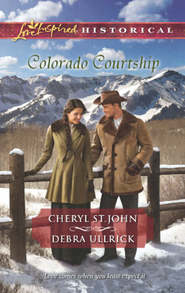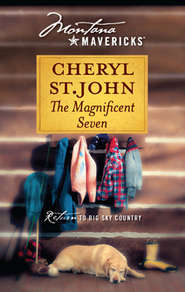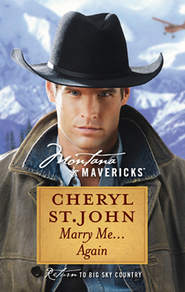По всем вопросам обращайтесь на: info@litportal.ru
(©) 2003-2025.
✖
Cowboy Creek Christmas: Mistletoe Reunion
Настройки чтения
Размер шрифта
Высота строк
Поля
“She was a lovely young woman.”
“Will you want to do another interview then?”
“Yes, perhaps in another week or two. We’ll generate interest with this first article, and with your advertisement, and then follow up so people don’t forget.”
“I read your book,” she said. She hadn’t been going to admit it, but there was no reason to withhold that bit of information. “It’s not my usual reading material, but it held my interest. You’re a very good writer.”
“I don’t know whether or not that’s a compliment. Your usual reading material is medical journals and field experiments.”
“I read history and—” She stopped abruptly. He was teasing her.
He was smiling, the corners of his dark-lashed eyes crinkling. The resulting flutter of anticipation was one she’d only experienced when facing a particularly stimulating curative challenge. How strange. But maybe she was responding to the challenge of convincing him to write about her in a way that would help grow her practice? Sam was no inexperienced journalist looking to make a name for himself. He’d been a city editor in New York, and the book he’d written about his Army experiences had been highly successful. He was well-known and admired.
“I’ll see you when you return to schedule your advertisement,” he said.
Pete held open the door for her, and she stepped onto the boardwalk, where the frigid air stole her breath. She glanced back into the newspaper office in time to see Sam’s tall form disappear into the back room where his son waited.
When faced with the choice between a life as someone’s wife and the challenge of learning and a career, she’d made her decision. She rarely paused long enough to consider what she may have missed. The past was the past, and both of them had moved on. She was satisfied with the path she’d chosen.
And now here he was, back in her life. Samuel Woods Mason. Still fascinating. Still charming. Still enigmatic and charismatic.
Still her one regret.
* * *
In the days that followed, Marlys’s plans didn’t go as expected, but such was the life of a doctor. She was surprised but gratified when three uniformed soldiers showed up in her office.
The shortest soldier removed his hat upon seeing her. “How do you do, ma’am. Is the doctor in?” A second man was occupied keeping the third fellow upright, with no free hand available to remove his hat. The patient grimaced and stood on one foot, leaning all his weight on his friend.
“I’m Dr. Boyd.” She hurried forward. “What is the injury?”
“You’re the doctor?” the first man questioned, but was cut off by his comrade.
“It’s my leg and foot,” the man in pain barked. “Horse reared and crushed me against a building.”
“Let me take a look at it.” She gestured to a narrow hallway. “Take him into the first room.”
“You sure about this, Ben?” his friend asked, eyeing Marlys.
“Get me to the room like she said,” Ben demanded, and hopped forward.
“His name’s Benjamin Cross,” the first man told her. “That’s Enoch, and I’m Jess. There was a note on Doc Fletcher’s chalkboard saying he’d be out all morning. Sheriff told us you were here.”
“Are you able to remove your trousers, Mr. Cross?” she asked.
Pain wasn’t enough to dull his discomfort with the suggestion, because the patient flushed, glanced around but finally unbuttoned his uniform pants. His friends helped him remove them and got him situated on the examining table. Marlys took a pair of shears and cut the leg of his gray flannel union suit from ankle to knee. “How long ago did this happen?”
“Happened right in front of the sheriff’s office,” Jess said. “Took us maybe ten or fifteen minutes to find you.”
“You’re fortunate, Mr. Cross.” She probed the area of his ankle, which was beginning to swell. “I don’t believe anything is broken. And I can encourage blood flow away from your foot to prevent more swelling and to help the soft tissue heal faster.”
“How are you going to do that?” Ben asked, looking at his purpling foot. Sweat beaded his forehead.
“While Enoch goes to the Cowboy Café for ice, I’ll give you something for pain, and then we will soak your foot in warm water, and I will massage the blood from the injury, upward back toward your heart. When Enoch gets back, we will ice it.”
“I never heard of such a thing,” Enoch said. “My pa got a crushed foot, and the doc put it in a cast.”
“How did he walk afterward?” Marlys asked.
“Well, he limped and used a cane.”
“Exactly. I don’t think Mr. Cross is ready to retire from his Army position and take to using a cane. I’d rather treat the injury and enable his body to heal the damaged tissue.”
Enoch just looked at his companions.
“It’s up to you, Ben,” Jess said.
Ben didn’t waste any time making his decision. Pain was a strong motivator, and the prospect of losing mobility—and employment—obviously added fuel. “What she’s saying sounds better than being a cripple,” he answered. “Go.”
Enoch turned and headed out.
Marlys diluted a pain remedy and gave it to her patient. He grimaced but swallowed it all. She heated water, dissolved Epsom salt, along with drops of hyssop, cypress, yarrow root, parsley and fennel oil, in a pail and had Ben soak his foot and ankle. After a few minutes he was resting somewhat more comfortably on the padded table. Using the oiled water, she massaged his foot and ankle in firm upward motions. He winced once or twice, but for the most part remained at ease.
“What did you give him?” Jess asked.
“It’s a boiled mixture of bark, roots and leaves to help with pain.”
He looked at his chum and then at her. “Seems to have worked.”
She nodded. “This procedure would have been quite painful without it. It’s necessary, though—motion will help the healing process and prevent his ankle from becoming stiff.”
Ben opened his eyes and attempted to sit up.
“Stay lying down, Mr. Cross. You’re doing very well.”
“Good thing Dr. Boyd was here,” Jess told his friend. “You’re going to be just fine.” Jess gave her a nod.
“What is the Army doing in Cowboy Creek?” Marlys asked.
“Delivering food to the Cheyenne.”
She paused her work on her patient’s foot momentarily. “Nearby?”
“To the south.”
“I read General Sherman had ordered provisions until a more permanent arrangement could be made by the peace commissioner.” She continued her effort to massage blood upward. “Have you seen their camp?”
He nodded. “Saw it last time we were through. They’re doin’ some farming.”






